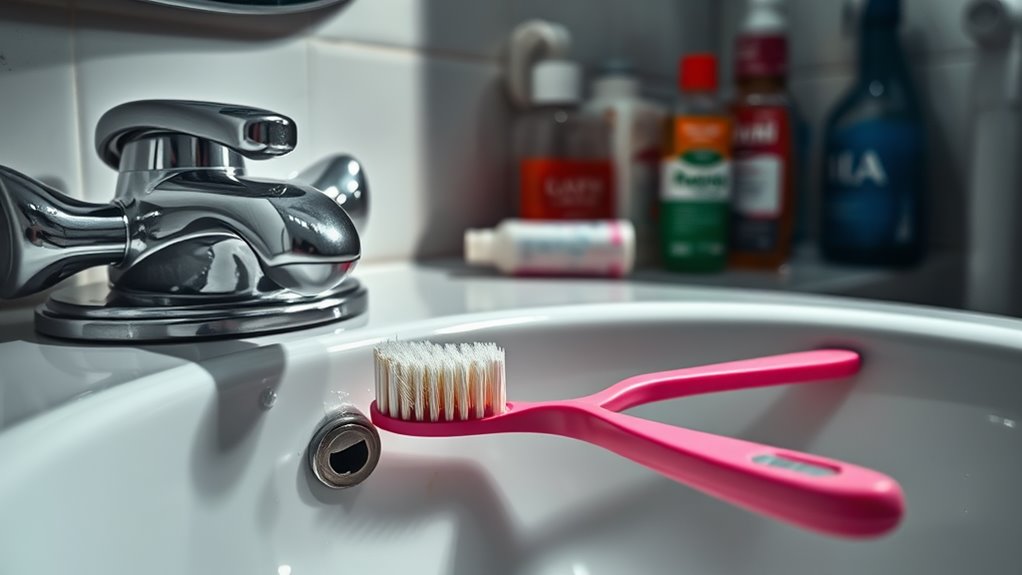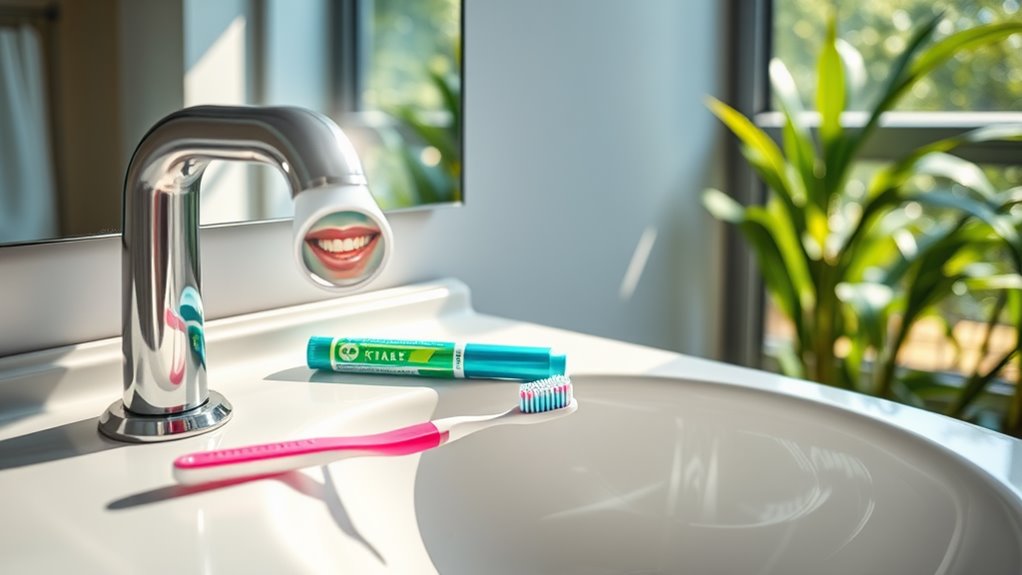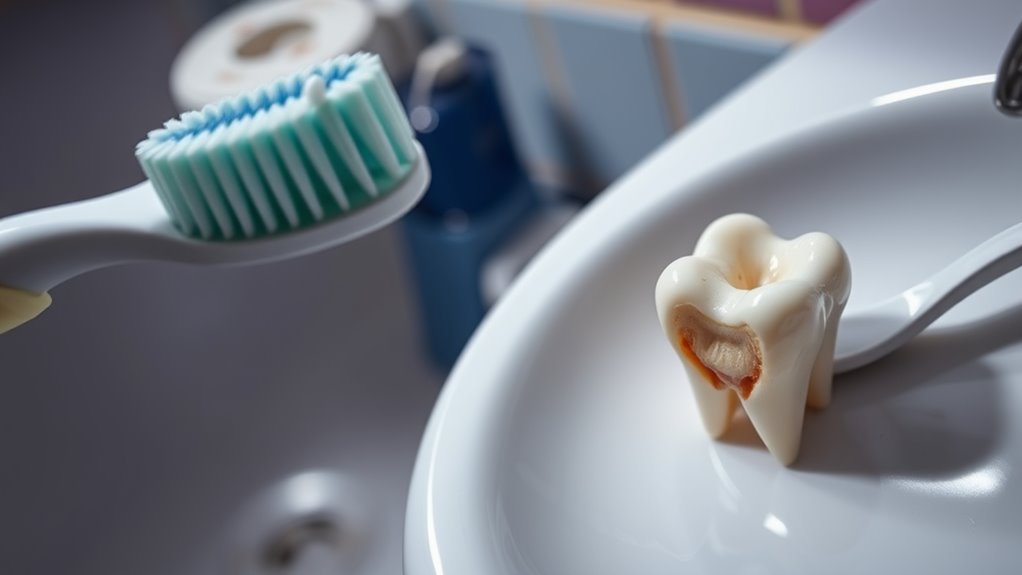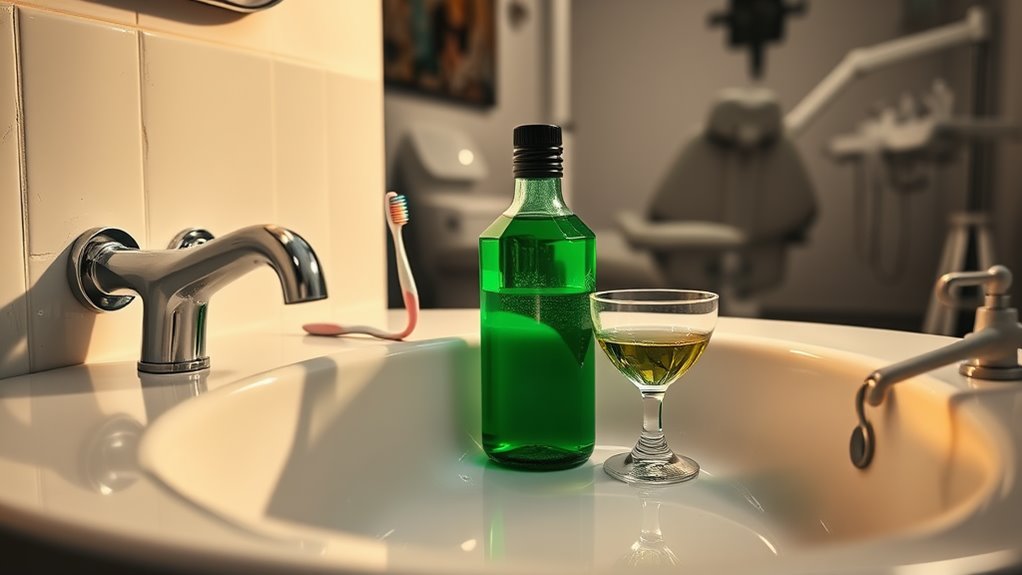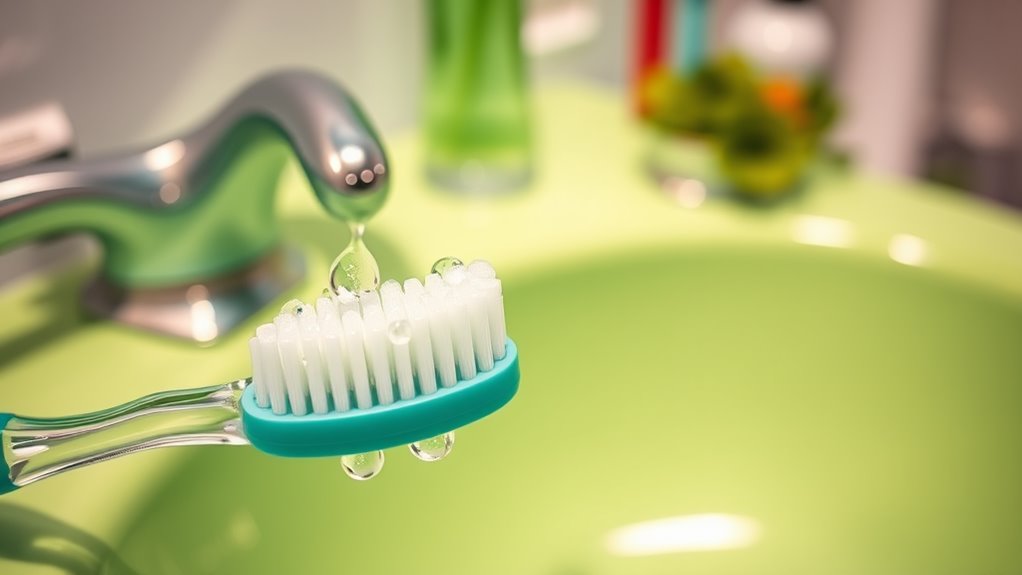10 Oral Hygiene Mistakes You’re Probably Making (and How to Fix Them!)
You might be making some common oral hygiene mistakes that could hurt your dental health. You’re probably not brushing long enough—aim for at least two minutes. Using the wrong toothbrush or applying too much pressure can damage your gums. Don’t forget to clean your tongue and floss regularly to keep your mouth healthy. Skipping dental check-ups can lead to larger issues down the road. There’s much more to discover about effective oral care routines.
Not Brushing Long Enough
One of the most common oral hygiene mistakes you might be making isn’t brushing long enough. Many people brush for just a minute or so, thinking that’s enough.
In reality, you should aim for at least two minutes each time. Set a timer or play your favorite song, and make it a fun routine! Focus on brushing each quadrant of your mouth equally, ensuring you reach all those tricky spots.
When you brush with intention and a bit of time, you’ll feel the difference—not just in your smile, but in your confidence. This shared journey toward better oral health can bring you closer to friends who care about their smiles too.
Using the Wrong Toothbrush
Brushing for the right amount of time is just one part of good oral hygiene; the tools you use matter too. Choosing the wrong toothbrush can really impact your efforts. If your brush has hard bristles, it might feel effective, but it can damage your gums and tooth enamel.
Opt for a soft-bristled brush instead; they’re gentler and just as efficient at cleaning your teeth. Also, consider the size of the brush head—smaller heads can reach those tricky spots better.
You might even explore electric toothbrushes, which can take your brushing routine to the next level. Remember, your oral care tools should support you in maintaining that healthy smile you want to share with others.
Make the right choice and smile confidently!
Brushing With Too Much Pressure
Excessive force during your brushing routine can lead to significant oral health issues. You might think that brushing harder will give you a cleaner mouth, but it can actually harm your gums, enamel, and even result in tooth sensitivity.
Instead of scrubbing vigorously, try using gentle circular motions. This method effectively removes plaque without damaging your teeth or gums. It’s also helpful to use a soft-bristled toothbrush designed for compassionate cleaning.
Remember, you’re not alone in this—many people struggle with the temptation to apply too much pressure. By focusing on a kinder brushing technique, you’re taking a big step toward maintaining a healthy smile that you can proudly share with friends and family!
Embrace the gentle approach, and your mouth will thank you.
Ignoring the Tongue
The surface of your tongue can harbor bacteria, food particles, and even plaque, often overlooked in daily oral hygiene. Ignoring your tongue can lead to bad breath and affect your overall oral health. A quick scrub can make a big difference!
Here’s a simple breakdown of why you should care for your tongue:
| Issue | Impact |
|---|---|
| Bacteria buildup | Bad breath |
| Food particles | Impaired taste |
| Plaque presence | Tooth decay potential |
| Aesthetic concerns | Dull appearance of tongue |
Neglecting Flossing
Flossing often takes a backseat in oral care routines, but neglecting it can lead to serious consequences for your dental health. You might think brushing alone suffices, but food particles and plaque love to hide between your teeth, fostering cavities and gum disease.
It’s an easy habit to overlook, especially when life gets busy, but it’s vital for keeping your smile bright and healthy.
Join your friends and family in prioritizing flossing; it can be a collective effort! Set a reminder, or even create a flossing challenge together.
You’ll deepen connections while taking charge of your oral hygiene. Remember, a clean mouth can elevate your confidence and spirit, making it easier to share your smile with the world.
Don’t skip this crucial step!
Timing of Brushing
After addressing flossing, it’s important to consider when you brush your teeth. Timing can make a big difference in your oral health, and it’s easy to get it wrong. Ideally, you should brush twice a day: once in the morning and once before bedtime.
| Time to Brush | Reason |
|---|---|
| Morning | Clears morning bacteria and freshens breath. |
| Before Bed | Removes food particles and reduces cavity risk. |
| After Meals | Wait 30 minutes if you eat acidic foods to protect enamel. |
| After Snacks | Helps maintain a clean, healthy mouth throughout the day. |
Skipping Regular Dental Check-ups
While it might be tempting to skip regular dental check-ups, doing so can lead to bigger problems down the line. You might think, “I feel fine,” but oral issues can lurk beneath the surface, waiting to escalate.
These visits aren’t just about cleanings; they’re vital for catching cavities, gum disease, and even cancer in their early stages. Plus, your dentist is your partner in achieving a bright, healthy smile.
Regular check-ups help reinforce good habits and keep you connected to a community that prioritizes oral health. So, don’t let fear or time hold you back.
Schedule those appointments, not just for yourself but for the people who care about your well-being. Together, you’ll maintain a vibrant, confident smile!
Choosing the Wrong Mouthwash
Have you ever thought about how the mouthwash you choose can impact your oral health?
Picking the wrong one can do more harm than good. To make sure you’re getting the best benefits, consider these tips:
-
Alcohol-Free Options: Alcohol can dry out your mouth and worsen bad breath.
-
Fluoride Inclusion: Look for mouthwash with fluoride to help strengthen your teeth.
-
Targeted Benefits: Choose mouthwash that meets your specific needs—whether it’s whitening, sensitivity, or gum health.
-
Check the Ingredients: Avoid harsh chemicals that might irritate your mouth.
Not Storing Toothbrush Properly
Improperly storing your toothbrush can lead to a host of oral health issues, from bacterial growth to ineffective cleaning.
You might think it’s okay to toss it in a drawer or leave it covered; sadly, that’s not the case. Keep your toothbrush upright in a holder, allowing it to air dry between uses. This step helps prevent bacteria from multiplying.
Avoid sharing your toothbrush or storing it near someone else’s, as it can spread germs. After a cold or flu, it’s best to replace your brush altogether.
You deserve to feel confident in your dental routine, and a clean toothbrush is a vital part of that. Let’s make sure your oral care is as effective as possible!
Using Expired Dental Products
A clean toothbrush is just one part of maintaining your oral health, but using expired dental products can undermine your efforts. You mightn’t think it’s a big deal, but expired items can lose effectiveness and even cause harm.
Here’s what to keep in mind:
-
Toothpaste: Check the expiration date; it can lose fluoride potency.
-
Mouthwash: Expired mouthwash mightn’t kill bacteria effectively.
-
Dental Floss: Old floss can fray and reduce its cleaning ability.
-
Teeth Whitening Products: These can degrade, leading to uneven results or irritation.
Make it a habit to regularly check your dental products. Staying fresh supports a healthier smile, and it lets you be part of a community that values good oral care!
